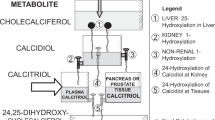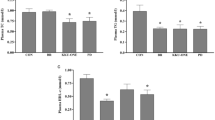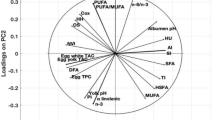Abstract
BILLS, Massengale and Imboden1 have found that one rat unit of blue-fin tunny liver oil in chicks has only 15 per cent of the antirachitic effect of one rat unit of cod liver oil, whence they conclude that the two forms of vitamin D are different. However, Dols2 demonstrated that the antirachitic effect of these two forms of vitamin D in chicks is the same, the necessary dose being about 80 international D units a day for each chicken. Before the results of Dols were known to us, we had running a great number of tests to investigate whether there is any difference between the vitamin D of different species of animals. (The fact that there is another form of natural vitamin D found in green plants and accompanying the free fatty acids3 is not discussed here.)
This is a preview of subscription content, access via your institution
Access options
Subscribe to this journal
Receive 51 print issues and online access
$199.00 per year
only $3.90 per issue
Buy this article
- Purchase on Springer Link
- Instant access to full article PDF
Prices may be subject to local taxes which are calculated during checkout
Similar content being viewed by others
References
Science, 80, 596; 1934.
Diss. Wageningen, 1935.
NATURE, 133, 533; 1934.
NATURE, 136, 396; 1935.
Author information
Authors and Affiliations
Rights and permissions
About this article
Cite this article
RYGH, O. Identity of Natural Vitamin D from Different Species of Animals. Nature 136, 552–553 (1935). https://doi.org/10.1038/136552b0
Issue Date:
DOI: https://doi.org/10.1038/136552b0
Comments
By submitting a comment you agree to abide by our Terms and Community Guidelines. If you find something abusive or that does not comply with our terms or guidelines please flag it as inappropriate.



